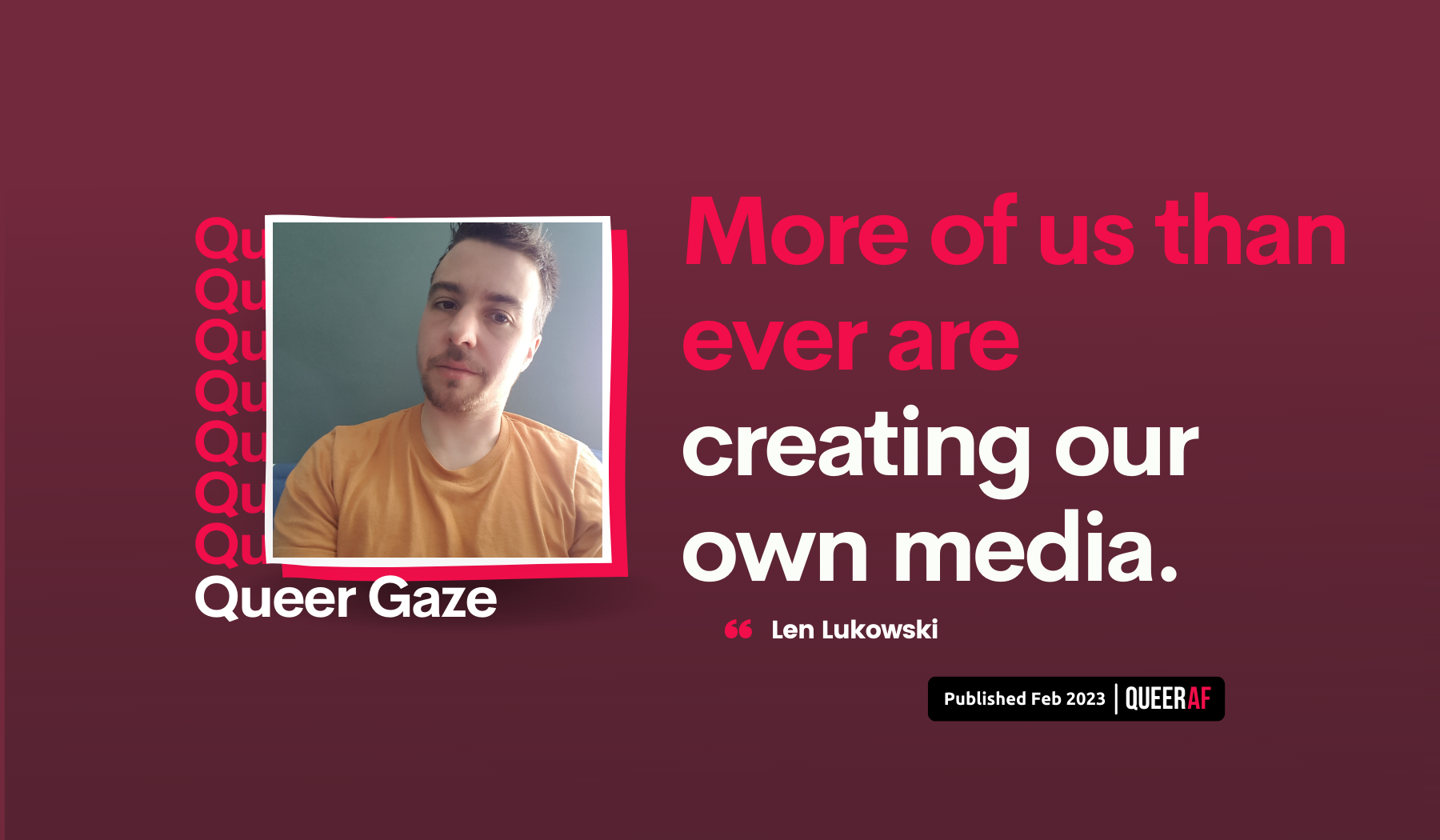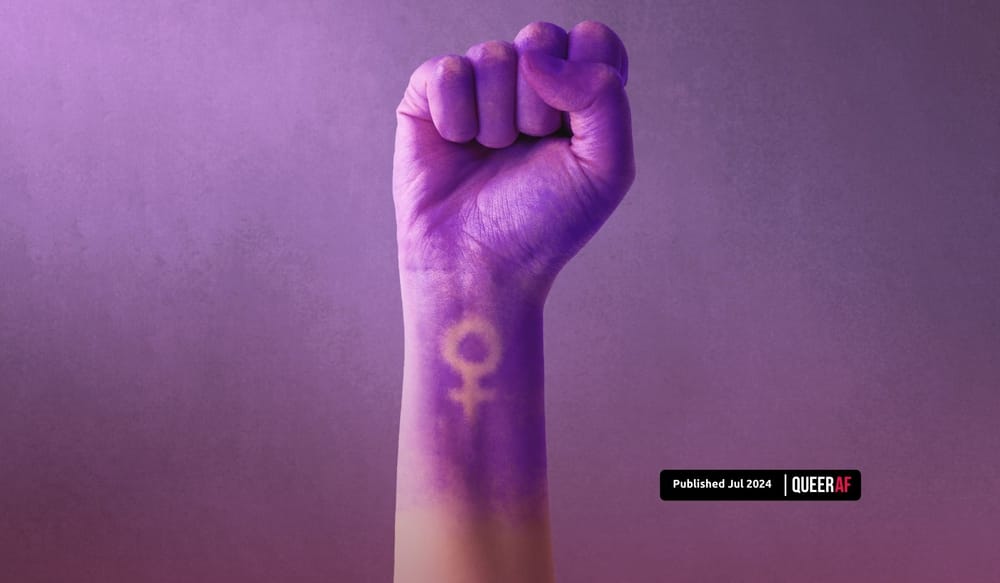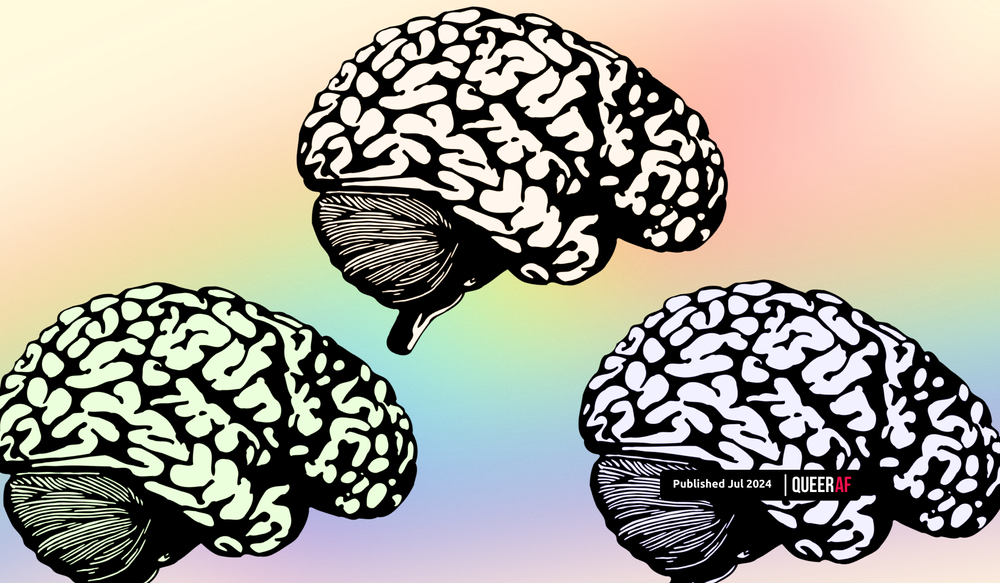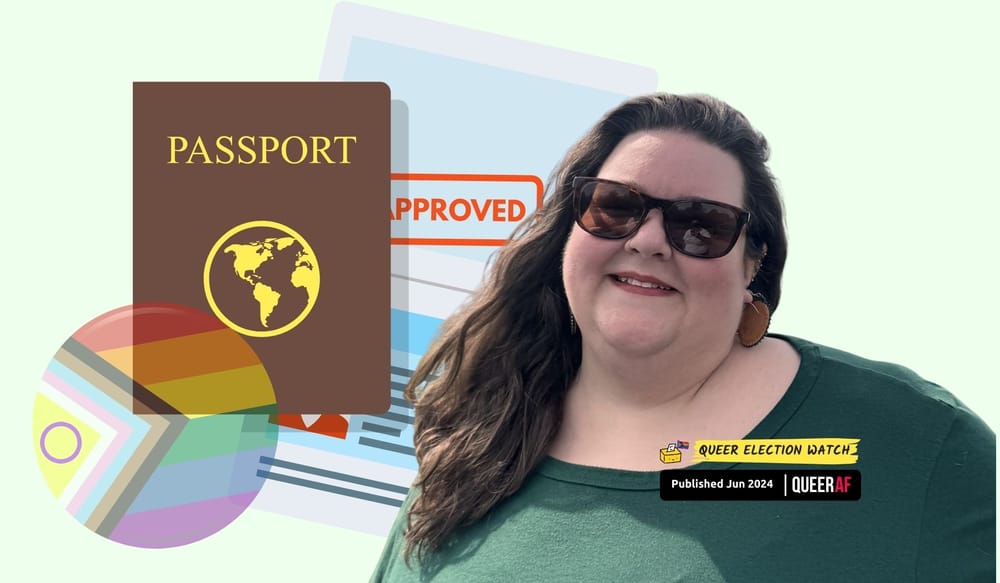
As a teenager, exploitative talk shows were the only time I regularly saw LGBTQIA+ people on TV. That’s why, when I see negative LGBTQIA+ representation today, I know how hard it hits queer kids.
One of the first times I became aware of queer politics was when the news showed footage of a demonstration to equalise the age of consent.
I'll never forget what my dad said: 'They just want younger and younger children'. The comment must have had an impact. It's stuck in my memory for 25 years.
But I also don't remember feeling outraged. Why would I?
Those kinds of comments were completely normal. And why would my dad think any different? Most depictions of LGBTQIA+ people in the ‘90s were as seedy jokes, ‘predators’ or ‘spreaders of a deadly virus’.
As a closeted queer teen, I videotaped Jerry Springer episodes shown in the early hours of the morning because, trashy and exploitative as it was, it was the only time I would regularly see LGBTQIA+ people on TV.
There were exceptions - Queer As Folk, for example - but for the most part, queer representation was something you had to dig deep for.
It was hard to find LGBTQIA+ people representing ourselves anywhere in mainstream culture. Queers were often being talked about instead due to moral panic.
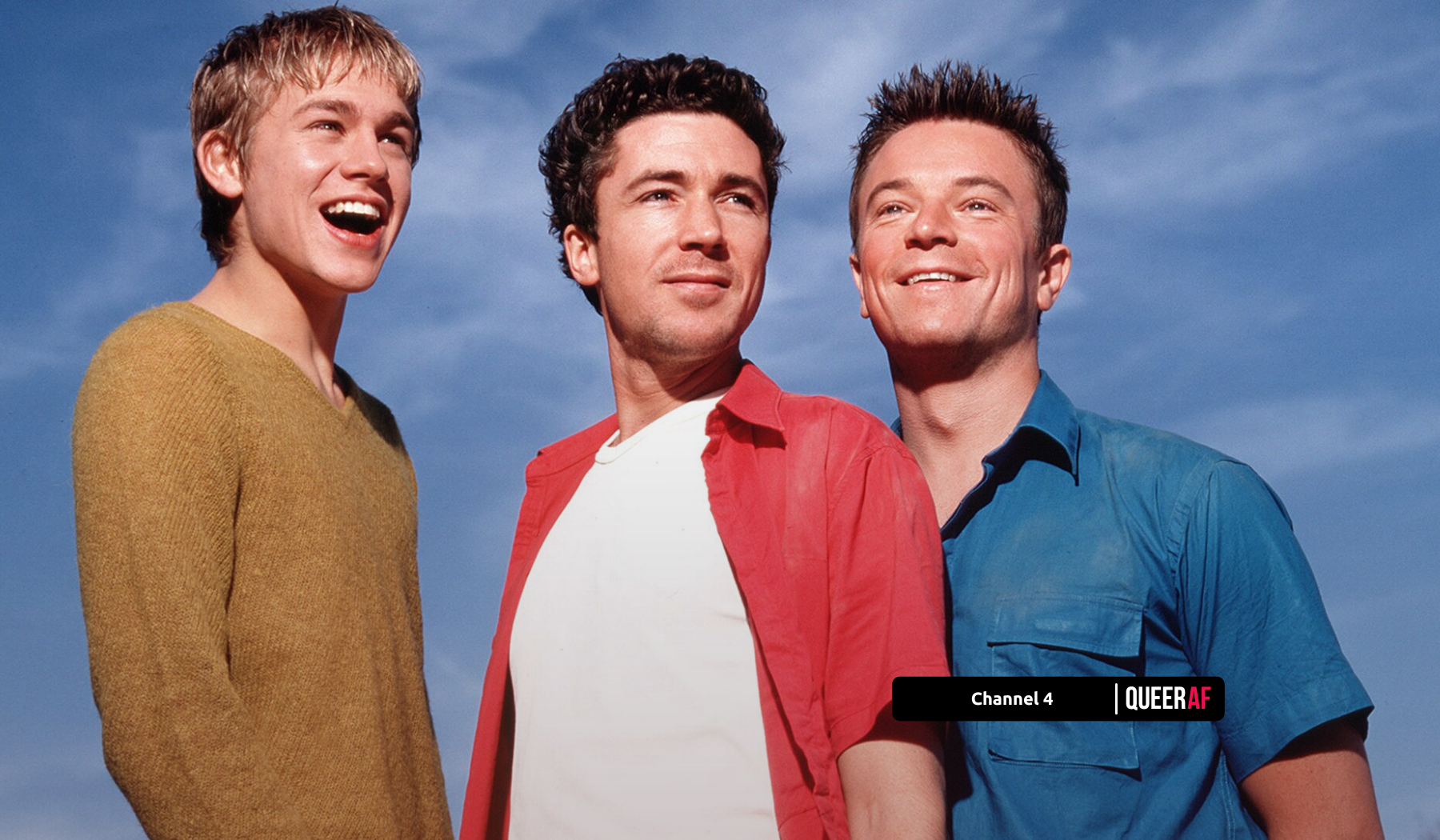
Meanwhile, teachers couldn't even acknowledge queer kids because of Section 28. This compounded the pain I already felt from daily homophobic bullying at school.
My interest in riot grrrl and bands fronted by androgynous boys meant I eventually discovered queer zines and websites, giving me the scrap of hope I needed to make it through my teens.
The mention of LGBTQIA+ people is not as taboo now, and the internet has made finding queer content much easier. That said, there are obvious parallels to the time I grew up.
Daily headlines present transness as a social contagion, a danger to women and children.
I've lost count of the discussions about trans people that don’t feature a single trans voice.
I worry about the impact these messages have on parents and teachers, who could be a lifeline to trans kids.
The landscape of the UK media can feel pretty hellish right now. But more of us than ever are now creating our own media. Platforming our own stories. It’s more important than ever to support these voices.
Equally, those consuming the headlines would do well to remember that what might be considered a salacious bit of clickbait, or an exciting talking point, really endangers people's lives.
The fear and isolation I experienced growing up are a testament to that.
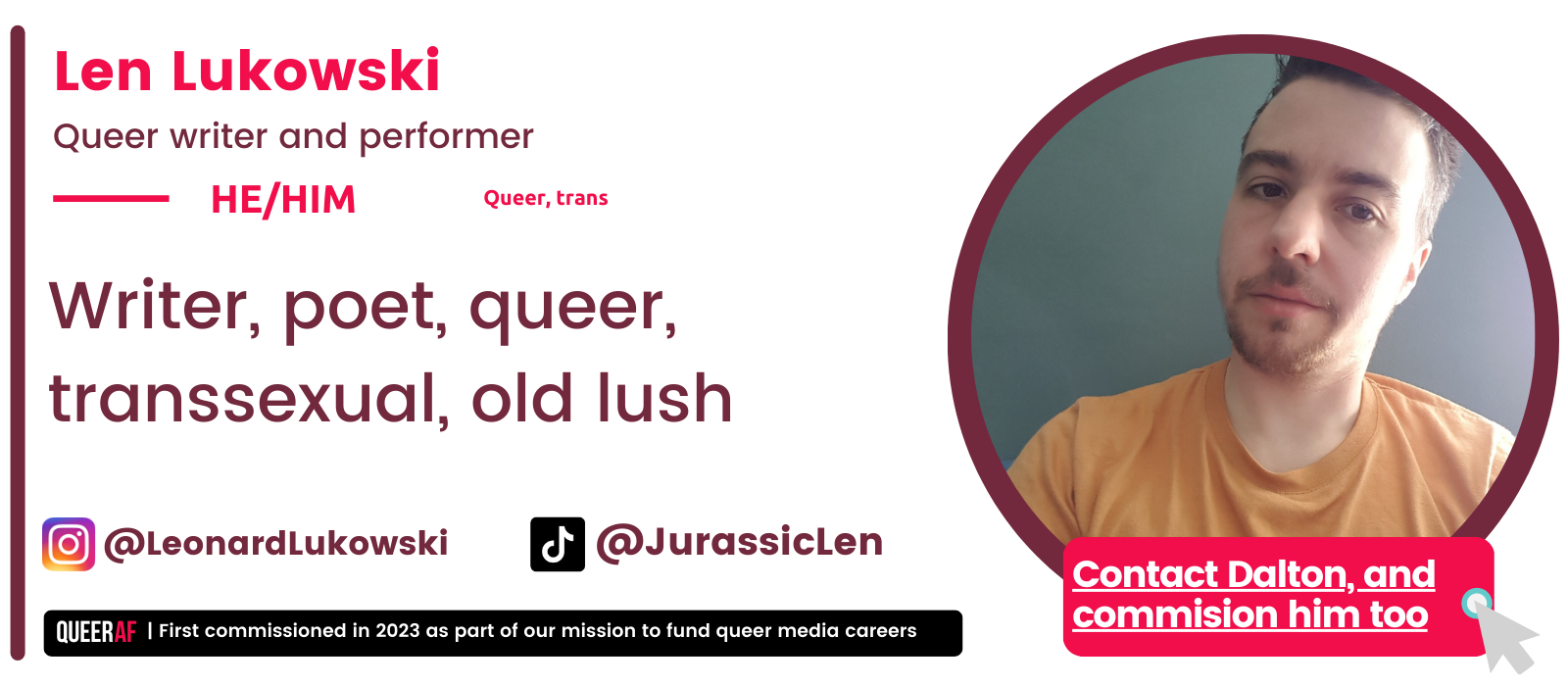
Len Lukowski is also a contributor to Twenty Eight, a series of stories and poems remembering Section 28. Get your copy now.
It's different, we know.
Do you get a kick out of reading QueerAF every week?
Do you feel better for learning about different LGBTQIA+ perspectives?
Empowered by the stories of other cool LGBTQIA+ folks?
Maybe you just love our super sick podcast reccs? 🤘
We certainly get a kick out of writing it - but we can't do that without the support of readers like you.
Whatever you get out of QueerAF, as a member, you'd get even more! Early access to content, the chance to directly commission an article - and the knowledge that your cash is supporting queer creatives every single week.
Sound good? Take a look at becoming a QueerAF member.


